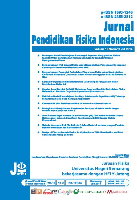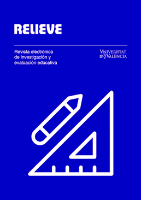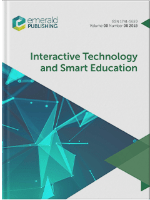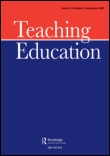
Jurnal Pendidikan Fisika Indonesia-Indonesian Journal of Physics Education
Scope & Guideline
Enhancing Teaching and Learning in Physics Together
Introduction
Aims and Scopes
- Innovative Teaching Methods:
The journal emphasizes research on innovative teaching methodologies such as project-based learning, inquiry-based learning, and blended learning approaches to enhance student engagement and understanding of physics concepts. - Assessment and Evaluation Tools:
A core area of focus is the development and evaluation of assessment tools, including diagnostic tests and critical thinking instruments, to measure students' understanding and competencies in physics. - Technology Integration in Education:
The integration of technology in physics education is a significant theme, with research covering the development of digital learning resources, e-books, and multimedia applications to facilitate interactive learning. - Scientific Literacy and Critical Thinking:
The journal prioritizes studies that explore the enhancement of scientific literacy and critical thinking skills among students, preparing them for higher-order thinking in scientific contexts. - Teacher Education and Professional Development:
Research addressing the preparation and continuous professional development of physics teachers is a consistent theme, focusing on equipping educators with the necessary skills and knowledge to effectively teach physics.
Trending and Emerging
- Project-Based Learning (PBL):
There is an increasing trend in research exploring project-based learning as an effective pedagogical approach, emphasizing its role in enhancing student engagement and promoting collaborative learning. - Use of Digital Tools and E-Learning:
The integration of digital tools and e-learning platforms is gaining traction, with numerous studies focusing on the effectiveness of online resources, mobile applications, and digital assessments in physics education. - Gender and Equity in Science Education:
Research addressing gender gaps and promoting equity in science education is emerging, highlighting the importance of understanding diverse student experiences and perspectives in physics learning. - Interdisciplinary Approaches:
An increasing number of studies are exploring interdisciplinary approaches, particularly the integration of physics with other scientific disciplines, such as biology and environmental science, to enhance relevance and application. - Critical Thinking and Higher-Order Thinking Skills:
There is a notable emphasis on research that fosters critical thinking and higher-order thinking skills in students, reflecting a broader educational goal of preparing learners for complex problem-solving in scientific contexts.
Declining or Waning
- Traditional Lecture Methods:
There has been a noticeable decrease in research focused on traditional lecture-based teaching methods, as the journal increasingly highlights more interactive and student-centered pedagogies. - Basic Physics Concepts without Contextual Applications:
Studies concentrating solely on basic physics concepts without connecting them to real-world applications or interdisciplinary approaches are becoming less frequent, reflecting a trend toward more contextualized learning. - Focus on Lower Educational Levels:
Research targeting lower educational levels, such as elementary or middle school physics education, has diminished, with a stronger emphasis now being placed on high school and university-level education.
Similar Journals

RELIEVE-Revista Electronica de Investigacion y Evaluacion Educativa
Innovating the future of education with open access knowledge.RELIEVE-Revista Electronica de Investigacion y Evaluacion Educativa is a leading open-access journal dedicated to advancing research and evaluation in the field of education. Published by the ASOC INTERUNIVERSITARIA INVESTIGACION PEDAGOGICA in Spain, this esteemed journal, with an ISSN of 1134-4032, has been a pivotal platform for scholarly discourse since its inception in 1995. As of 2023, it is ranked in the Q2 Quartile for Education within Scopus, reflecting its significant impact in the academic community, where it occupies the 61st percentile among 1543 journals in the Social Sciences Education category. Spanning the years 2001 to 2024, RELIEVE covers a broad scope of topics within educational research and evaluation, making it an invaluable resource for educators, researchers, and policy makers alike. With its commitment to open access, the journal ensures that critical educational research is freely available to inspire innovation and improvement in educational practices across the globe.

Jurnal Penelitian dan Pembelajaran IPA
Empowering Educators through Innovative ResearchJurnal Penelitian dan Pembelajaran IPA, with ISSN 2477-1422 and E-ISSN 2477-2038, is a leading open-access journal published by the University Sultan Ageng Tirtayasa under the Faculty of Teacher Training & Education (FKIP). Launched in 2015, this journal plays a pivotal role in advancing the field of science education, providing a platform for researchers, educators, and students to share innovative research findings and pedagogical practices. Located in Serang, Banten, Indonesia, the journal aims to bridge the gap between academia and practical application in the science education sector, ensuring that knowledge is accessible to all. With its commitment to quality and transparency, Jurnal Penelitian dan Pembelajaran IPA is dedicated to contributing to the development of effective teaching strategies and enhancing research methodologies in science education, thus influencing future generations of learners.

Interactive Technology and Smart Education
Discovering the future of education, one article at a time.Interactive Technology and Smart Education is a leading academic journal published by EMERALD GROUP PUBLISHING LTD, dedicated to exploring the dynamic intersection of technology and education. With a robust impact factor signifying its significant contributions to the field, this journal consistently ranks in the Q1 quartile in categories such as Computer Science (Miscellaneous), Education, and E-learning, reflecting its prestige and wide-ranging influence. A staple for researchers, educators, and industry professionals, the journal addresses innovative practices and developments in interactive technologies that enhance teaching and learning experiences. Operating from its base in the United Kingdom, the journal spans nearly two decades of impactful publishing, featuring high-quality research that plays a crucial role in shaping the future of education through technology. Scholars seeking to stay at the forefront of this evolving field are encouraged to contribute and engage with the journal's pioneering work.

Teaching Education
Cultivating effective teaching methodologies for all.Teaching Education, published by Routledge Journals, Taylor & Francis Ltd, is a pivotal journal in the field of educational studies, with an ISSN of 1047-6210 and an E-ISSN of 1470-1286. Established in the United Kingdom, this journal has significantly contributed to the discourse on educational theory and practice since its inception in 1987, with a focus on research that enhances teaching methodologies and promotes effective learning environments. With a commendable Scopus rank of 419 out of 1543 in the Social Sciences - Education category, placing it in the 72nd percentile, it attracts a diverse range of scholarly contributions that elevate the quality of education worldwide. Although it does not offer open access, Teaching Education remains an essential resource for researchers, educators, and policy makers interested in the latest developments and insights in educational practices, making it a valuable addition to any academic library.

Education Sciences
Advancing Knowledge in Education and BeyondEducation Sciences, published by MDPI, is a renowned open-access journal based in Switzerland, committed to disseminating groundbreaking research across a wide array of interdisciplinary fields related to education. Since its inception in 2011, the journal has fostered scholarly discourse, presenting peer-reviewed articles that contribute to the advancement of knowledge in crucial areas such as Computer Science Applications, Developmental and Educational Psychology, Physical Therapy, and Public Administration, achieving impressive rankings within Scopus, including 81st percentile in Education and 79th percentile in Physical Therapy. With a dedication to accessibility and inclusivity, Education Sciences promotes the free exchange of ideas and findings, ensuring that educators, researchers, and policy-makers can readily access innovative studies that inform practices and policies in education and health professions. As it converges towards 2024, this journal stands as a critical platform for anyone invested in understanding and enhancing educational practices globally.

Journal of E-Learning and Knowledge Society
Unlocking Insights for Tomorrow's Digital EducatorsJournal of E-Learning and Knowledge Society is a premier academic journal dedicated to the exploration and advancement of e-learning and knowledge dissemination in contemporary society. Published by the SOC ITALIANA E-LEARNING, this journal has established itself as a vital resource for researchers and practitioners since its inception in 2006. With an open access model adopted in 2007, the journal promotes the free exchange of ideas and research findings, ensuring wide accessibility to academic contributions in this rapidly evolving field. The journal is indexed in notable databases and holds a Q3 classification in both Computer Science Applications and Education, reflecting its significant role in the advancement of educational technologies. Furthermore, its Scopus ranks highlight its relevance within the educational and computer science communities. Based in Rome, Italy, the Journal of E-Learning and Knowledge Society aims to bridge the gap between theory and practice, providing a platform for innovative research that shapes the future of digital learning environments. Whether you are a researcher, educator, or student, this journal offers valuable insights and developments in e-learning that are critical to navigating today’s knowledge society.

Campus Virtuales
Navigating the Future of Education through TechnologyCampus Virtuales is a prestigious academic journal published by RED UNIV CAMPUS VIRTUALES, dedicated to the exploration and advancement of knowledge in the fields of Education and Computer Science. With a notable presence in the academic community, it ranks impressively in Scopus—with an outstanding 95th percentile in the Social Sciences Education category and an 80th percentile in Computer Science Applications. Although the journal has ceased its coverage in Scopus since 2022, it remains a critical resource for researchers, professionals, and students interested in the intersection of virtual learning environments and technological innovations. The journal aims to foster discussions and disseminate research that enhances understanding of online education and digital tools in contemporary learning contexts. Situated in Huelva, Spain, and with an ISSN of 2255-1514, Campus Virtuales continues to champion scholarly dialogue and the development of best practices in virtual educational settings.

REDIMAT-Revista de Investigacion en Didactica de las Matematicas
Elevating Pedagogical Practices in MathematicsREDIMAT-Revista de Investigacion en Didactica de las Matematicas, published by HIPATIA PRESS, is a leading open-access journal dedicated to advancing research in mathematics education, particularly focusing on didactic methodologies and pedagogical innovations. Since its inception in 2012, the journal has fostered an inclusive platform for academics, educators, and practitioners to disseminate their findings and insights, significantly contributing to the field of mathematics education. With an ISSN of 2014-3621, REDIMAT aims to promote high-quality research and collaboration across diverse educational contexts. The journal not only emphasizes empirical studies but also theoretical developments and practical applications that enhance teaching and learning of mathematics worldwide. By providing a valuable resource for researchers, professionals, and students alike, REDIMAT plays a pivotal role in shaping the future of mathematics education research.

Informatics in Education
Empowering Education Through Informatics InnovationInformatics in Education is a premier academic journal published by Vilnius University, Institute of Mathematics and Informatics, focusing on the intersection of information technology and pedagogical innovation. With an ISSN of 1648-5831 and an E-ISSN of 2335-8971, this Open Access journal has been disseminating critical research since 2003, enabling widespread accessibility and collaboration across the global educational community. The journal's commitment to advancing the field is demonstrated by its impressive 2023 Category Quartiles: Q1 in Communication and Education and Q2 in Computer Science Applications, highlighting its significant impact on these disciplines. Located in Lithuania, Informatics in Education ranks impressively in Scopus, with a Social Sciences Communication rank of #54/511 (89th percentile) and a Social Sciences Education rank of #188/1543 (87th percentile). The journal's goals include fostering research that informs pedagogical practices and enhances educational outcomes through the innovative use of technology, ensuring it remains at the forefront of research in this vital field. Researchers, professionals, and students alike will find a wealth of knowledge within its pages to support their work and learning endeavors.

Journal of Baltic Science Education
Shaping the Future of Science Education in the BalticThe Journal of Baltic Science Education, with ISSN 1648-3898, is a leading academic journal published by the SCI METHODICAL CENTRE - SCI EDUCOLOGICA in Lithuania. This esteemed journal, established in 2008, has gained recognition within the educational sector, boasting a notable impact factor that places it in the Q2 category for the year 2023, highlighting its significance in advancing educational research. With Scopus rankings reflecting a commendable placement at #659 out of 1543 in the Education category, the journal serves as a vital platform for disseminating knowledge and fostering discourse among researchers, professionals, and students in the field of science education across the Baltic region and beyond. The journal’s objectives include promoting innovative educational practices, sharing empirical research findings, and contributing to the development of effective science teaching methodologies, ensuring that it remains at the forefront of academic inquiry in education.